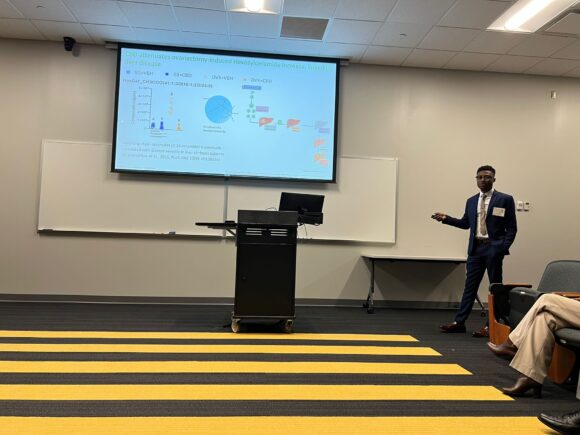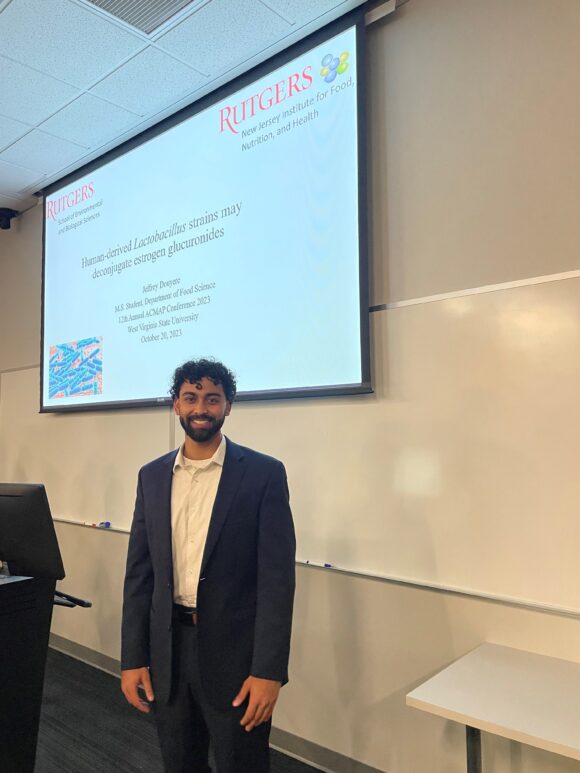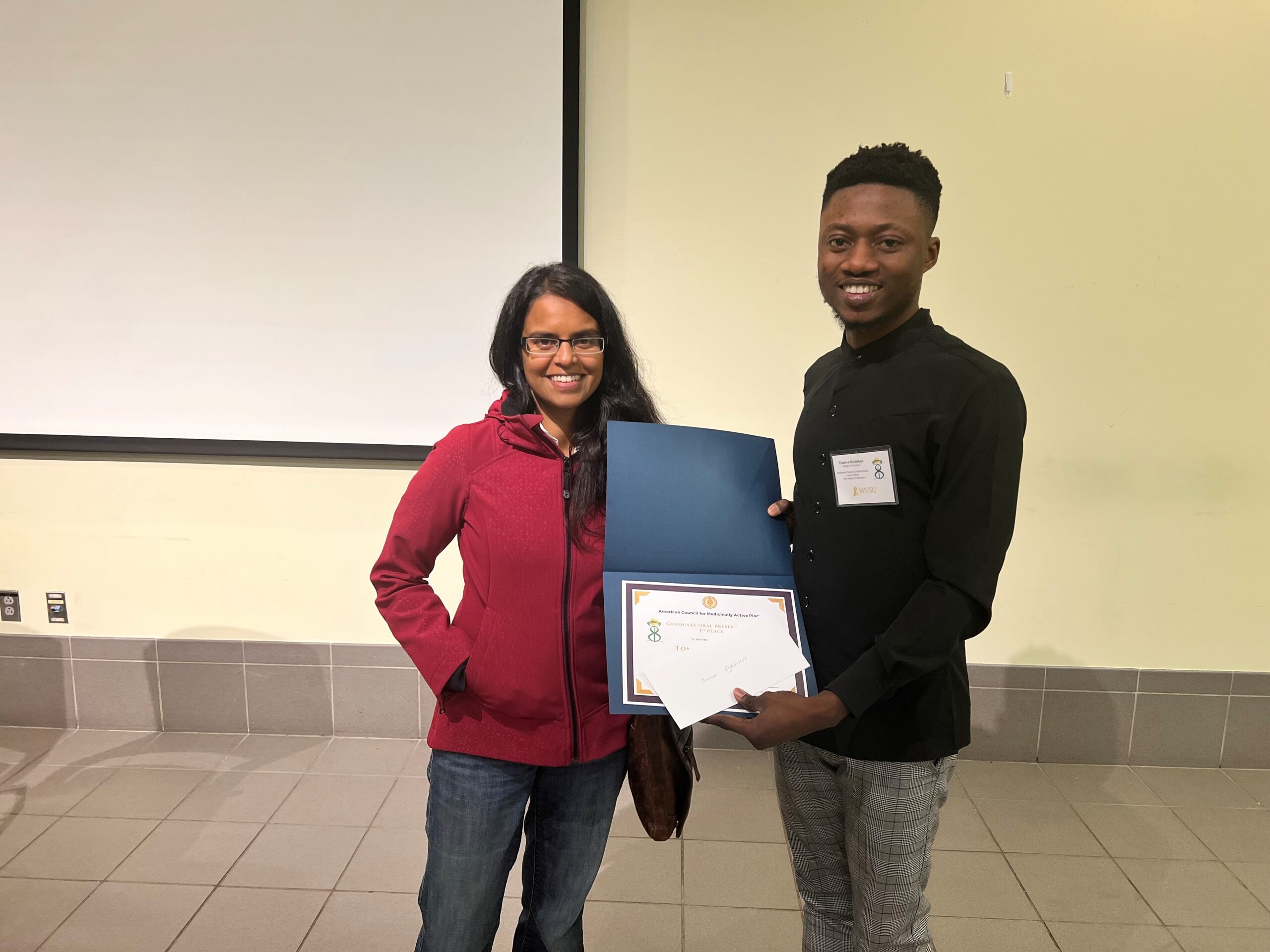
Tomiwa Oyedokun presenting at the ACMAP conference.
In mid-October, graduate students Tomiwa Oyedokun (Ph.D. student, Nutritional Sciences) and Jeffrey Douyere (MS student, Food Science) won first and second place, respectively, for Best Graduate Student Oral Presentation at the 12th Annual Conference of the American Council for Medicinally Active Plants (ACMAP). The conference took place in West Virginia from October 18 to October 21. ACMAP was founded to promote and foster research, development, production, and conservation of medicinal, aromatic, and other bioactive plants for human health. Graduate students submit research abstracts and are selected to present their research, providing them with an extremely helpful opportunity to connect with academic, government, and industry leaders in natural product research.
Tomiwa Oyedokun presented his research on the hepatic lipidomic analysis of cannabidiol (CBD)-treated estrogen deficient and sufficient mice. Low levels of estrogen in postmenopausal women can increase the risk of metabolic disease. Oyedokun presented data indicating that CBD, a non-psychotropic phytocannabinoid from Cannabis sativa, can change the liver lipid profile and may help mitigate metabolic disease risk. Menopausal and postmenopausal women typically use hormone replacement therapy (HRT), but use beyond five years can increase the risk of cancer and stroke. Oyedokun is researching CBD as an alternative. The Roopchand lab previously found that CBD reduces inflammation and bone loss and improves glucose tolerance in an estrogen-deficient mouse model of female menopause. Oyedokun’s recent findings provide greater insight into how CBD may modulate lipid profiles to improve cardiometabolic health in postmenopausal females.
“Winning the first place award is an incredible honor and a milestone in my academic journey. It validates the significance of my hard work and our laboratory’s research, and it motivates me to continue exploring how CBD can help improve women’s health,” Oyedoken said.

Jeffrey Douyere presenting at the ACMAP Conference.
Jeffrey Douyere gave his presentation on the ability of different human-derived Lactobacillus bacterial strains to deconjugate estrogen glucuronides. In the liver, estrogen is converted to inactive compounds by adding glucuronides, a type of sugar group, which facilitates excretion. Many Lactobacillus strains encode enzymes called beta-glucuronidases that can remove the glucuronide sugar from estrogen. Due to differences in substrate specificity, not all strains with beta-glucuronidase work on estrogen glucuronides. Understanding which gut bacteria can deconjugate estrogen glucuronides and allow reabsorption of active estrogen may be useful for increasing estrogen levels in circulation, which could be useful in postmenopause. Douyere explained that the goal of his research is to identify which human-derived Lactobacillus strains can reactivate estrogen, which may provide gut microbiome-related solutions for increasing estrogen levels in postmenopausal women.
“The opportunity to present my work holds great personal and professional significance. Not only was I able to showcase the countless hours of hard work I had invested in my project, but it represented a chance for me to present work that could potentially advance future treatments for postmenopausal women,” Douyere said.

Assoc. Professor Diana Roopchand and Tomiwa Oyedokun holding his certificate after he won first place.
Diana Roopchand, associate professor in Rutgers’ Food Science Department and advisor to both Jeffrey and Tomiwa, said, “Being a graduate student who is selected to be a conference speaker is already an important accomplishment. Seeing Tom and Jeff also win 1st and 2nd place awards for best Graduate Student Presentation, among several other graduate student presenters, was phenomenal! I am delighted to see the hard work of my graduate students gain recognition, and this further confirms the importance of our laboratory’s research on women’s health.”
This article was written by OPOC intern Emily Ranieri.

